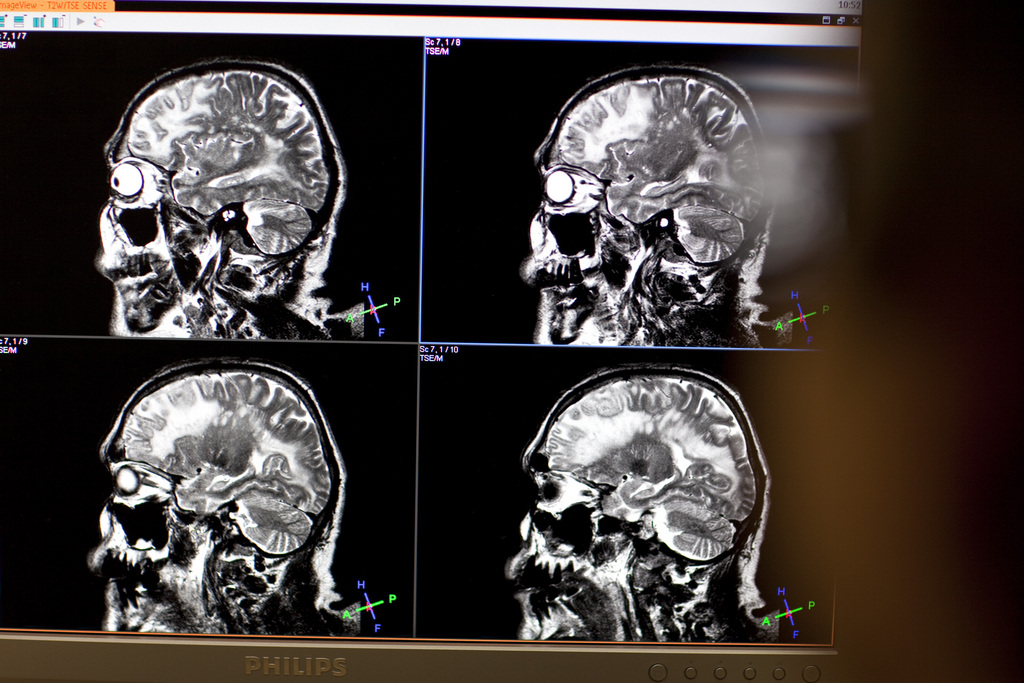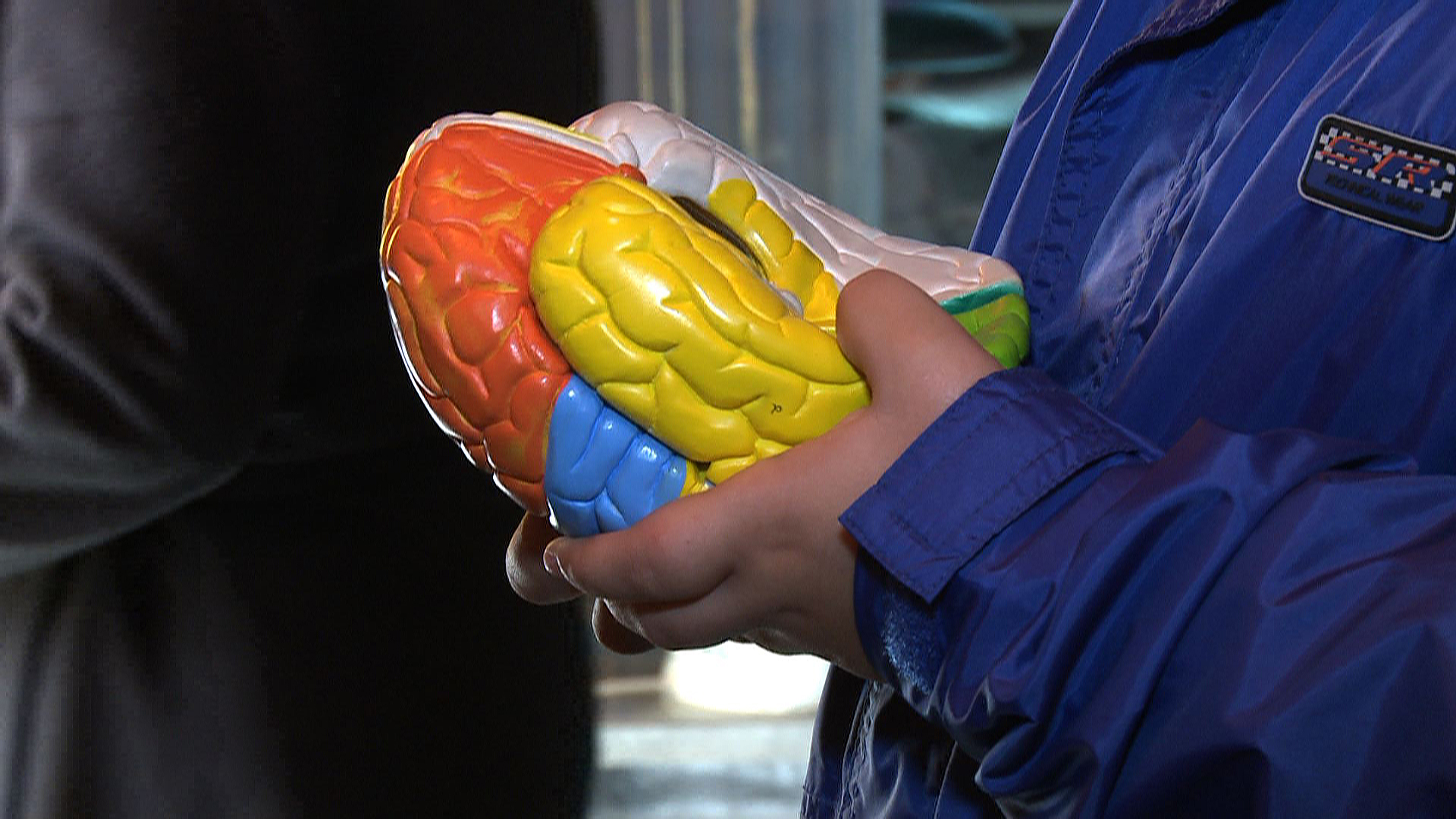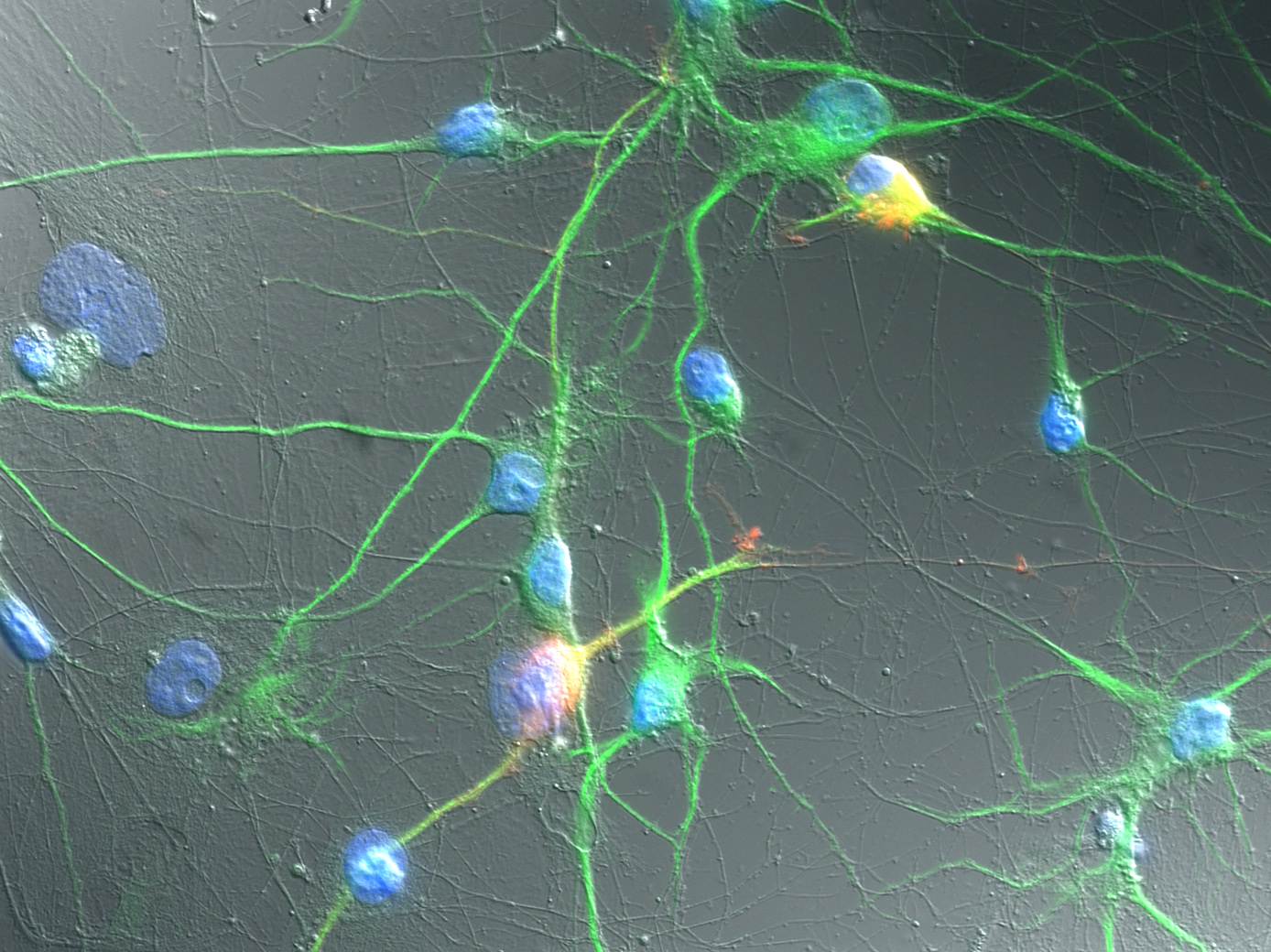Trauma in youth makes lasting imprint on brain

A Lausanne-based research team has found the first concrete evidence of a long-sought-after biological link between trauma experienced in childhood and an inability to control violent behaviour later in life.
Carmen Sandi, who leads the research team in the Laboratory of Behavioural Genetics at the Federal Institute of Technology in Lausanne (EPFL), says a link between a traumatic childhood and violent tendencies in adulthood has long been examined and accepted from a psychological perspective. However, her team found for the first time physical evidence of the brain’s neurobiological structure being altered by traumatic experiences during the formative years.
“Nobody has shown that early life trauma is directly – and neurobiologically – linked to later aggressive behaviour,” Sandi told swissinfo.ch. “Before, we had many pieces of information that were not linked, but now we can show that.”
The link is particularly demonstrated through the MAOA gene, located in the prefrontal cortex region of the brain. In male rats that experienced violence or trauma as youngsters, the gene’s expression changed long-term to make the rats unable to inhibit violent impulses and therefore show more aggressive behaviour.
Now, said Sandi, the research team is focusing on finding what makes individual rats, and ultimately humans, especially vulnerable to the effects of trauma experienced early in life.
“Not all individuals exposed to this early trauma are equally affected, so we are very interested in identifying mechanisms or critical factors for individual vulnerability,” she said. “Stress is a trigger of this long-term programming, so we are also trying to investigate the role of stress hormones in the programming of this behaviour to really understand what happens.”
Sandi’s team tested MAOA gene inhibitors, or antidepressants, on the traumatised rats to see whether they would have any effect – and they did. Antidepressants are thought to improve the brain’s “plasticity,” or ability to absorb new ideas and experiences that can lessen the effects of traumatic ones. However, Sandi stresses the importance of combining antidepressant treatment with behavioural therapy, especially as her team continues to research and develop treatment solutions for the effects of trauma.
In addition to expanding its research to human test subjects in the future,
Sandi’s group of about 20 researchers will seek to understand whether the same link between childhood trauma and violent tendencies also exists in female species.

In compliance with the JTI standards
More: SWI swissinfo.ch certified by the Journalism Trust Initiative




You can find an overview of ongoing debates with our journalists here. Please join us!
If you want to start a conversation about a topic raised in this article or want to report factual errors, email us at english@swissinfo.ch.